Ahead of Mother’s Day, former Nirvana drummer, Foo Fighters frontman and rock-and-roll icon Dave Grohl is heading to Canada with his mother, Virginia Hanlon Grohl.

And why are they heading to the Great White North? While working on a secret project on the east coast of the U.S., the duo has some spare time, so they’re making an appearance at Canadian Music Week 2019 as keynote speakers.
On May 10, Grohl will interview his mom in front of a small crowd at Toronto’s Osgoode Ballroom East about her novel, From Cradle to Stage.
From Cradle to Stage was published in 2017 and documents exactly what it’s like to raise a rock star — and that’s not limited to Dave.
Over the course of 18 months, Virginia spoke with a variety of rock mothers to craft the novel, including the mothers of Amy Winehouse, Michael Stipe, Dr. Dre, Adam Levine, Miranda Lambert, and Gary Clark Jr., among many others.
Ahead of her visit to Toronto, Virginia spoke with Global News about how the book came to be, her son, their upcoming project and what it’s like hanging out with other rock moms.
She also detailed what life is like on tour with the Foo Fighters, handling Dave’s dark period following the death of Kurt Cobain, her son’s kindheartedness and his newfound love for barbecuing.
Global News: Not only are you the mother of Dave Grohl and an accomplished educator, but you’re now a successful book writer. What inspired you to write From Cradle to Stage?
Virginia Hanlon Grohl: It was definitely the urge to connect with other mothers that I hadn’t seen before. I went to a lot of shows and travelled with David after I retired… even before that too. I was backstage all the time and I never actually saw any of the other mothers. I always thought to myself, “Why not? Why are they missing out on all this fun?” So a friend of mine said, “Well you should go find them,” and I did. I made a long list of people I wanted to meet and while some said no, most of them said yes. So I headed out to meet them, whether I had to drive or take a flight. It was a lot of fun and all in all a great journey. I learned a lot and I had the very best time.
VHG: We’re working on something else right now actually, so we’ll be in the east coast working on that before heading up to Canada to talk to you guys. It’s a work in progress right now so I can’t say too much, but I can tell you that it’s a documentary. We’ve already done some filming with Tom Morello and his mother — who were in the book — and we’re heading to Virginia Beach next to film a music festival that Pharrell is doing, which features a bunch of artists local to Virginia — which of course is where Dave grew up. We’re heading out in a bunch of different directions and including a lot of different people, much like the book. Other than that, it’s a little too early to preview for anybody. [Laughs]
READ MORE: The Cranberries members reflect on life, music without Dolores O’Riordan
- After decades of streaming and digital, music fans returning to some old-school ways
- David Bowie’s daughter says she doesn’t ‘place blame’ on parents for rehab stints
- Radiohead tells ICE ‘go f**k yourselves’ for using song in immigration video
- ‘Trailer Park Boys’ actor Mike Smith to stand trial for sexual assault
GN: How young was Dave when you started to notice that he wanted to be a musician? What were the signs?
VHG: He showed signs really early… I think before he could even walk. He was always trying to make people laugh, even when he was tiny. So I got the sense that he was going to be an entertainer very early on. I don’t remember exactly how old he was when the music specifically emerged, but we always sang together and played different music games. He first picked up the guitar when he was around 10 or 11. I didn’t think he was going to be a global star; I just always knew he was going to play music and that’s how he saw it too. He never said, “I want to be rich and famous.” That was never a part of the conversation and it never had anything to do with it, he just knew that he had to play music — which was something all of them had in common… Another thing was that they all committed themselves to a music career when they were around 12-years-old. After that, there was no changing their minds.
VHG: Well we’d be listening to the radio in the car all the time and we’d listen to all kinds of music at home. Because of that, he started to learn how to do harmonies and he said that changed the way he listened to music. He didn’t tell me about that when it happened, but he wrote about it in the foreword of my book. It was a remarkable change in the way that he related to music. Which he never jumped up and down about, like he never said, “Oh mom, I’ve had an epiphany!” [Laughs] But it kind of was I guess.
GN: Do you remember what it was like seeing him perform live for the first time? Do you still enjoy it?
VHG: Oh, he was in a lot of different bands, since he was about 12, so I went to all of those shows. Two of his friends’ mothers would rent a recreation hall in a local housing area and we would chaperone them. They would go around and put up signs all over the streets — keep in mind, this is before the internet — and have a couple of punk bands to come into a rec hall and put on this show in front of a hundred kids at a time or so. The mothers and I would keep things on the up-and-up and they just had the best time. They were very good about getting out there and getting their music out to the public. We were just outside of D.C., so there were some really tiny clubs — which aren’t there anymore — where they would go in and play and could seat about 30 people or so. David was playing in front of people very early on.

Get daily National news
READ MORE: Streaming music is worse for the environment than CDs, vinyl: study
GN: Dave achieved global stardom with Nirvana in only his early twenties. Did you have any concerns about the lifestyle associated with the grunge scene?
VHG: Oh sure! Yeah. You would hear that it’s dangerous and dark, or deep and scary all the time. I think the first time I went to a Nirvana show, the thing that struck me was how young everybody was. It was the entire stage crew, the guys working the lighting rigs, the radio people and even the managers. They were all really young, but so committed and just loving what they were doing. It really surprised me, it wasn’t what I thought it was going to be at all. I thought it was a pretty positive atmosphere for the most part and I didn’t see a lot of the dark things associated with it until later… y’know, when things got a little… scary.
VHG: Oh yeah, he was very open. We definitely talked about it. David always made promises that he would not do certain things and I trusted that, but I was not completely naive… I’m still learning things now actually. [Laughs] There are still confessions coming up… On a weekly basis. But that’s OK, it’s sort of funny now.
GN: Did Dave come to you for help after Nirvana ended? Was he open about his feelings before moving on and starting the Foo Fighters?
VHG: Yeah, that was a very difficult time, because so much had been done with Nirvana. He’d seen the world and he’d gone to a whole different level in terms of music and fame. The rug was just pulled out from their feet out of nowhere. Kurt was such a good friend of his too. We talked about it together a little bit, but it was so difficult for him. He came home to Virginia right after that and after a while started writing and listening to music again. It was a really difficult year, but he did make a good recovery.
READ MORE: The best moments in Canadian music of 2018
GN: It’s incredible that after such a dark period he came back on top with the Foo Fighters. Having said that, in quite a few of their songs, Dave sings about Virginia. Is he referring to where he grew up, or is he really referring to you?
VHG: Well every time I’m actually at a Foo Fighters show, he takes the opportunity to stop one of those songs while he’s singing it and tell the audience that it’s about me and then he makes me wave to the audience and causes a big to-do, so I poke my head around the sound system and wave. I love sitting at the side of the stage where nobody can see me, because I love people watching. I’m always peeking around to see what’s going on with the audience. To be able to go out on tour is such a life-changing experience.
VHG: Oh not with him, no. He’s now got three daughters. So he’s a full-time dad — and a great, great father at that. He’s on duty all day long. If he’s not at the studio, he’s in the kitchen with one of them making pancakes, or in the studio with another writing a song, or tugged by the four-year-old to the swing set. [Laughs] He’s just a really in-demand father.
GN: When all is said and done, is Dave a good son? Does he still send cards for Christmas or take you out on your birthday?
VHG: Oh, always. Always! He was always the most fun person to be with — even from the times when he was little. He still is the best person to travel with, or even just hang out at home and have dinner with. He just doesn’t disappoint.
READ MORE: Cage the Elephant’s Matt Shultz goes in-depth on new album ‘Social Cues’
GN: In Cradle to Stage you featured the mothers of Amy Winehouse, Michael Stipe, Dr. Dre, Adam Levine and so many others. You gathered quite the list. Were there any mothers you wanted to speak to but couldn’t get ahold of?
VHG: Well, I would have loved to speak to Paul McCartney’s mom, but of course that wouldn’t be possible. I’m sure she would have had an incredible story to tell though. I did want to talk to Bruce Springsteen’s mom too. I once saw her sitting across the room from me at an event. There were definitely a lot of people I, unfortunately, missed out on, but for the most part, I found such delightful people — and some who might not be as well know — like Gary Clark Jr.’s mom, who wasn’t seen on camera anywhere before. She was such a delight and we had so much fun together. I think her son is such a genius and it’s been so fun to be able to watch him since. We’ve even met a couple of times at shows since then, whenever our sons go out and play together.
GN: In celebration of Mother’s Day, We’d like to know what was the most thoughtful thing Dave’s ever done for you?
VHG: Oh, I have so many treasured memories, I don’t even know which one to share. I think I mentioned this one in the book too, but I’ll share it anyway. Because my birthday’s at the end of August, I celebrated a lot of them in England during Reading Festival. One of them specifically was a complete surprise. From the balcony of Dave’s hotel room, he and his wife poured some champagne for me and then said “Look down at the park below. That’s your birthday present down there.” So I looked over the balcony and there was this big red double-decker bus sitting there with the band, the entire crew and the whole Foo Fighters family. They were just waiting for me… So we did a twilight tour of London altogether. It was the best birthday party ever. We were singing The Beatles’ songs and driving through all of London’s beautiful parks and historical streets, it was really fun. It’s the thoughtful things like that, I get so many great surprises.
GN: Thank you Virginia, and Happy Mother’s Day to you.
VHG: Thank you so much, I hope to see you soon. We can’t wait to arrive in Canada and chat with you all during Canadian Music Week.
—
From Cradle to Stage outlines exactly what it takes to raise an ambitious young rock star. Who better to tell the story than Virginia?
Dave Grohl is now seen as a role model to millions of people across the globe and has been for more than two decades now. He’s respected widely as not only a musician but as a father and a human being in general. His dedication to his passions is evident and never stops showing.
It’s clear that he learned from the best — his own mother.
READ MORE: Side Door, a so-called ‘Tinder for musicians,’ officially launches in North America
From Cradle to Stage can be purchased through the book’s official website. The top-selling novel even features a forward by the younger Grohl.
As of this writing, there are no additional updates on the Grohls’ secret project. They are expected to discuss the documentary during Canadian Music Week.
Tickets for the exclusive Canadian Music Week panel can be purchased here. It will last around one hour and 15 minutes and feature a Q&A session.


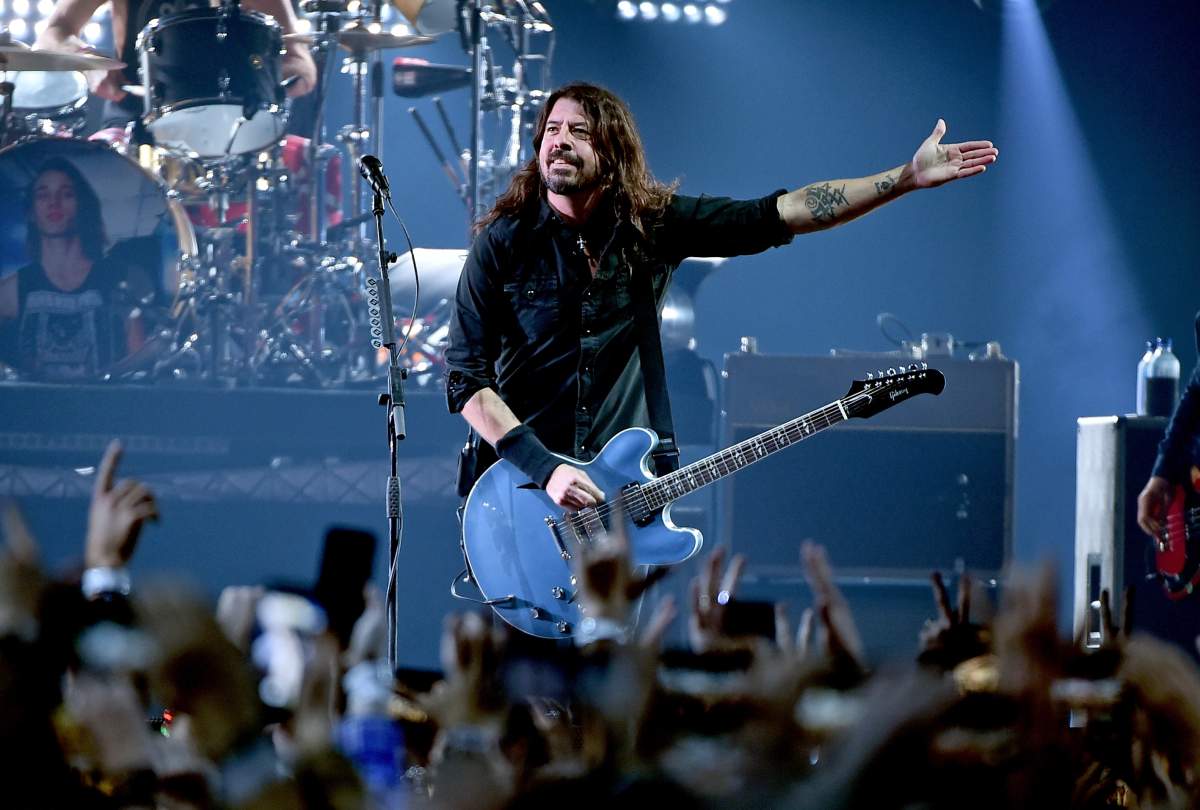
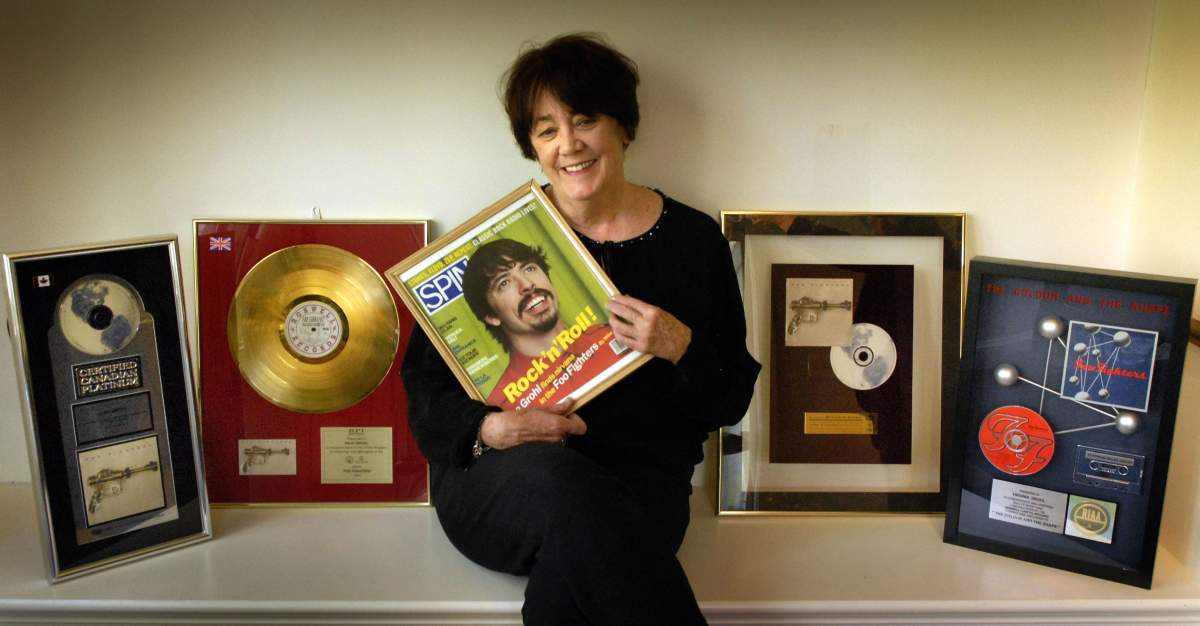




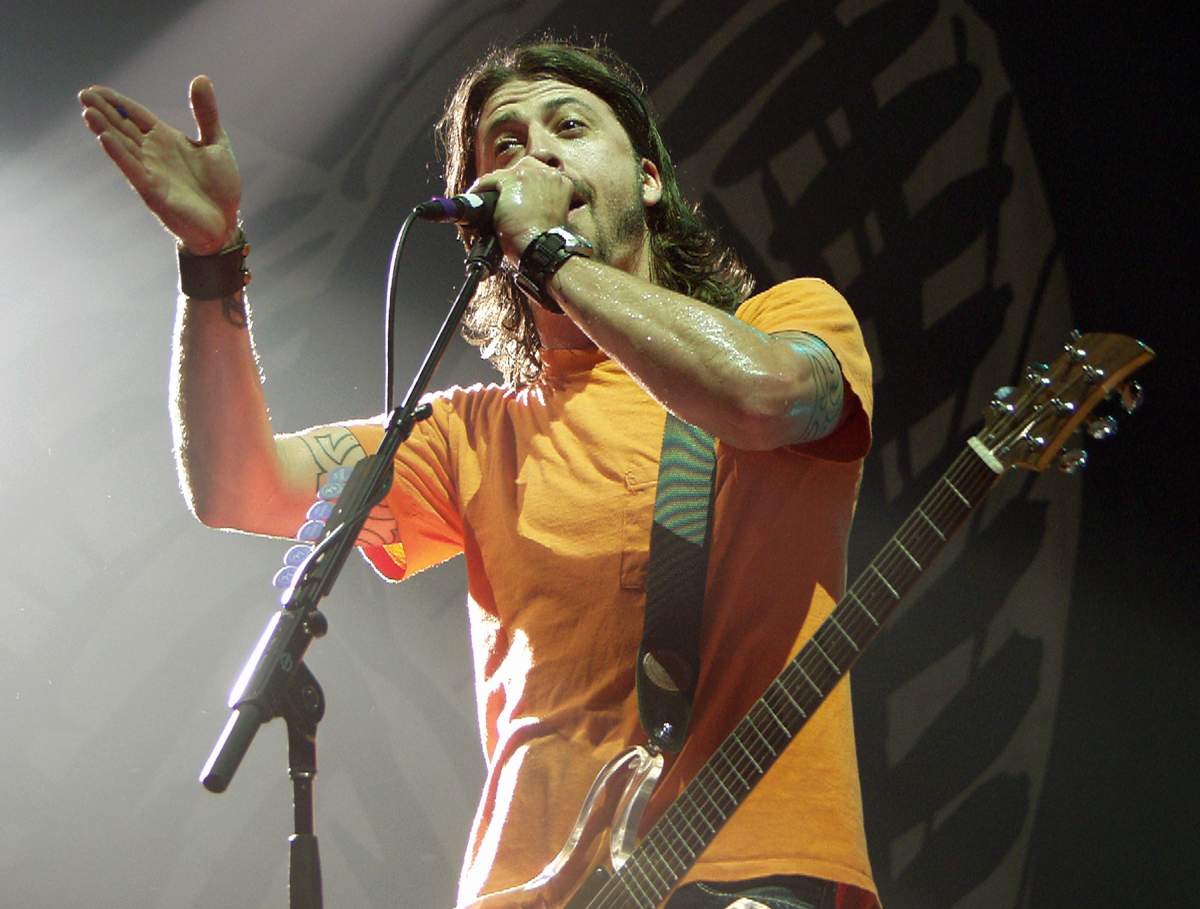
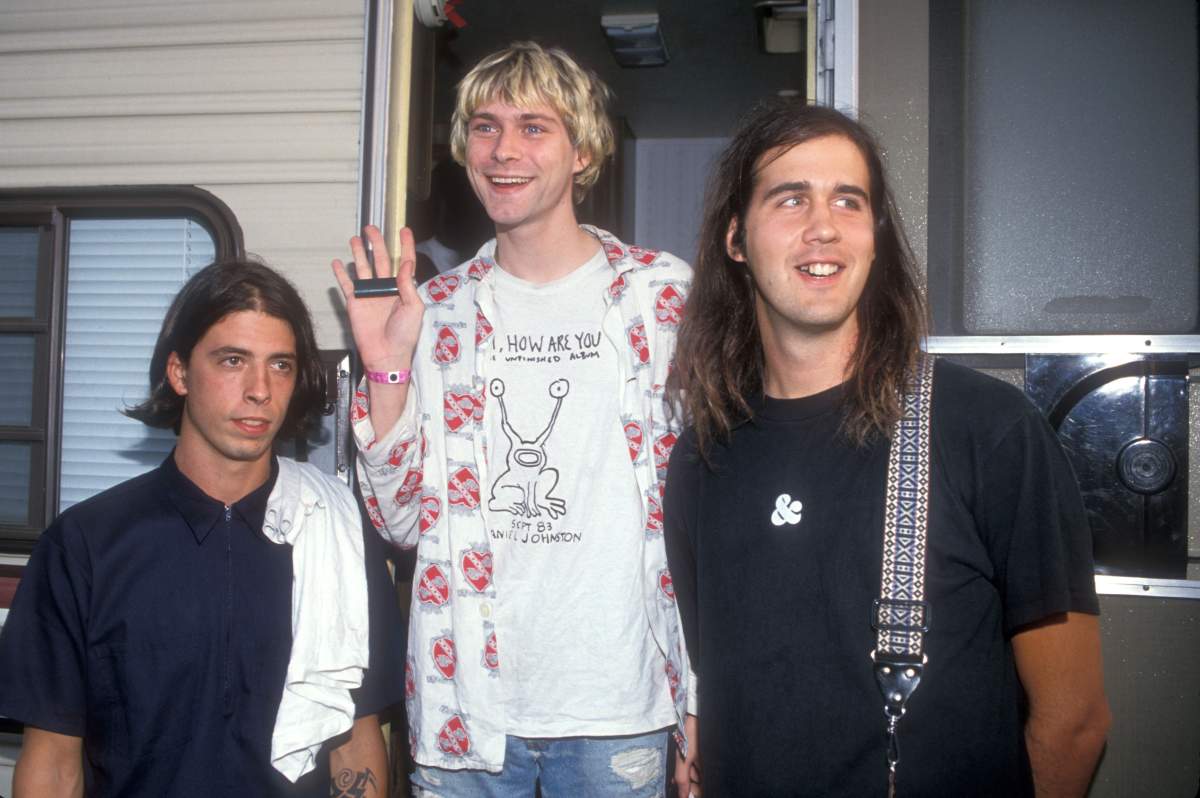



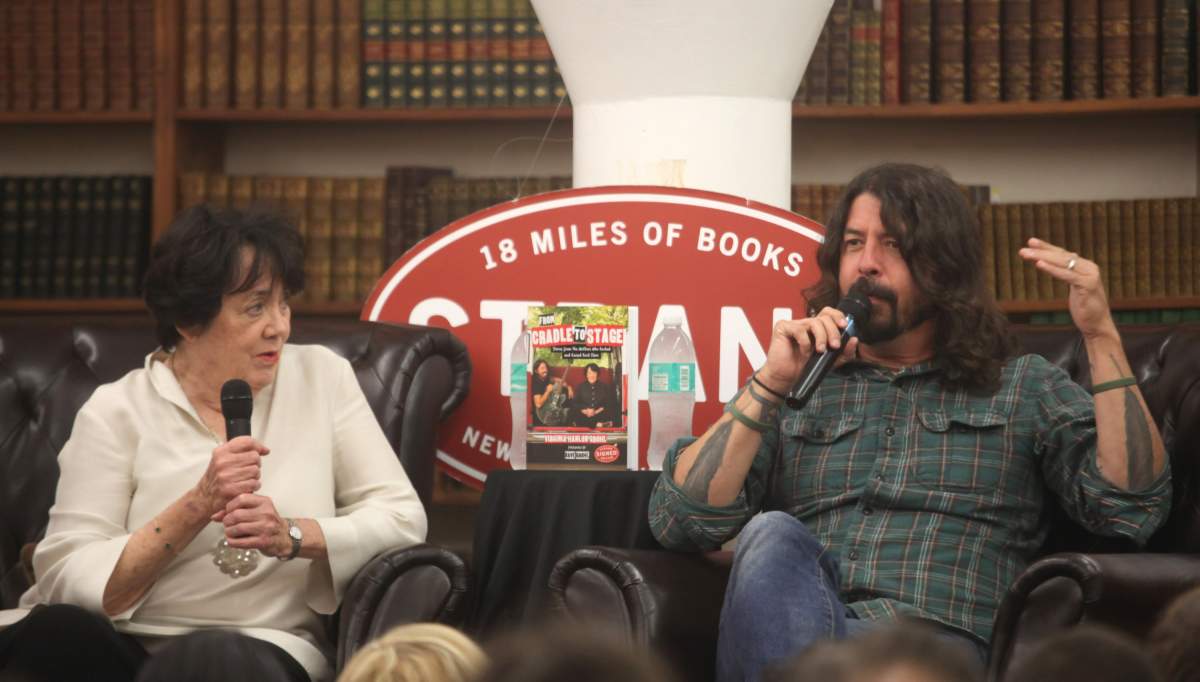

Comments
Want to discuss? Please read our Commenting Policy first.